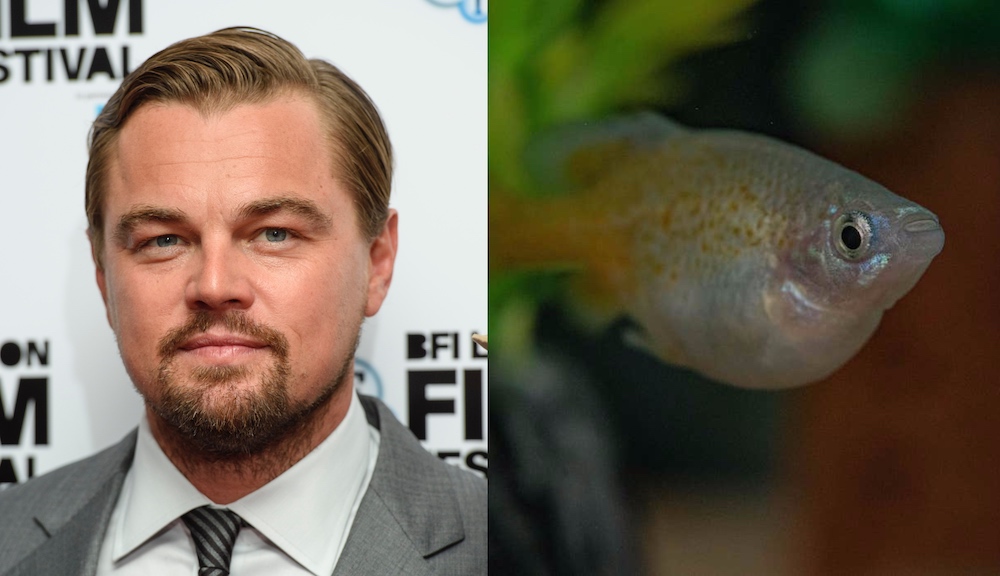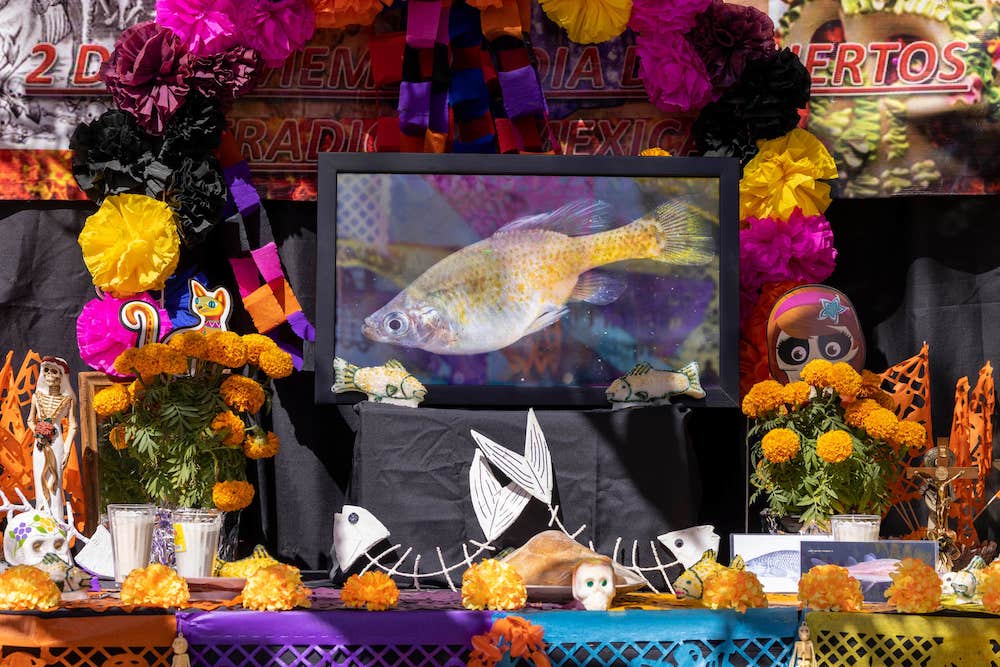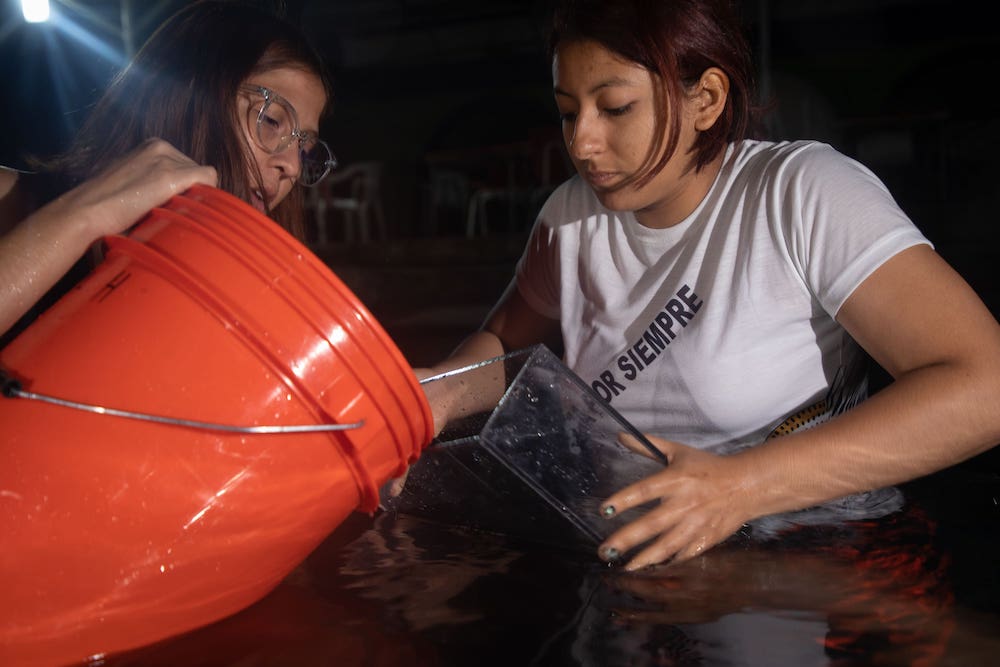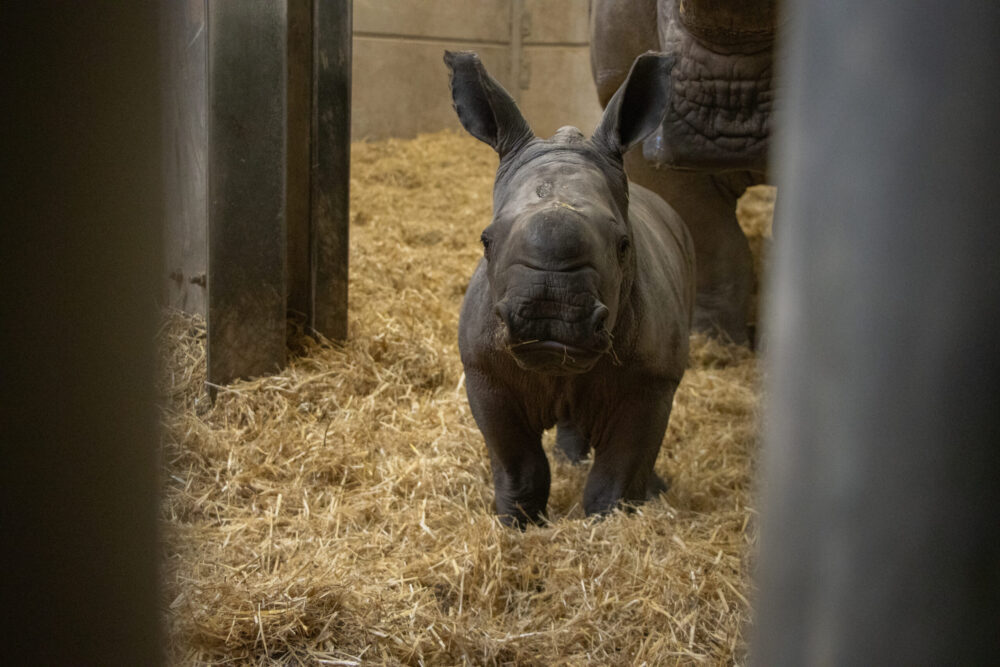
Environment
Leonardo DiCaprio praises Chester Zoo for returning 1,200 ‘extinct’ fish to wild
3 years ago

Chester Zoo thanked the Hollywood actor after he took to social media to share the successful reintroduction of the endangered golden skiffia fish.
Leonardo DiCaprio has praised the work of Chester Zoo and its conservation partners for bringing a rare fish species “back from the dead”.
Conservationists from the zoo worked alongside a team of global experts from the UK, North and Latin America to release 1,200 golden skiffia fish back into the Teuchitlan River in Mexico for the first time in 30 years on Wednesday.
The Cheshire zoo thanked the Hollywood actor after he took to social media to share the news of the successful reintroduction with his with his 55.6 million Instagram followers.

The golden skiffia had been pushed to extinction in the wild as a result of human disturbance caused by dam construction, water extraction, pollution and the introduction of invasive species.
DiCaprio’s post, which has racked up more than 282,000 likes, showed a photograph of a golden skiffia surrounded by brightly coloured flowers and colourful calaveras – the Mexican word for skulls – in reference to the Day of the Dead, which coincided with the release of the fish.
The Day of the Dead is a traditional Mexican celebration, when it is believed that people’s deceased ancestors return to the land of the living for one night to talk and spend time with their families.
Omar Dominguez-Dominguez, a professor and researcher from the Michoacan University of Mexico, led the golden skiffia reintroduction and said returning the fish on the prominent day was an “amazing thing”.
Mr Dominguez-Dominguez said:
“Releasing the golden skiffia at this time is a metaphor for how the species has come back from the dead to return to its home, not for one night, but forever.
“Releasing this species back into the wild is a light of hope for this wonderful family of fishes – the goodeids – and for the conservation of freshwater fish more generally.
“Knowing that universities, zoos and aquarists can come together to fix some of what has been destroyed and return to nature some of what has been lost is an amazing thing.”

In preparation for the species’ return to the wild, the fish were first placed in ponds to adapt to different conditions and then taken to floating pods, known as mesocosms, in the river where they lived for at least a month to further adapt to natural conditions before release.
Fish released into the wild were tagged and will be monitored for the next five years to assess whether the population is increasing and whether the fish are reproducing and growing successfully in the river.
Paul Bamford, regional programme manager for Latin America at Chester Zoo, said:
“This project is a great example of how zoos can contribute to conservation in the field through conservation breeding and research, utilising the skills and experience that have been developed in zoos to help strengthen existing and new wild populations.
“By supporting freshwater conservation in Mexico and the ecosystems where the fish live, we’re not only protecting biodiversity and the wellbeing of freshwater environments, but also the people and communities that live alongside them.”
The project is part of Fish Ark Mexico, a conservation project in central Mexico that focuses on 41 highly threatened species of freshwater fish.
In 2014, scientists from the Michoacan University of Mexico and fishkeepers from the Goodeid Working Group helped restore the degraded habitat and remove non-native species from the Teuchitlan ecosystem.
The golden skiffia release comes just a few years after the successful reintroduction of the tequila splitfin, which faced very similar threats to the golden skiffia and was also prevented from extinction as a result of a conservation action by experts from Chester Zoo.









 Subscribe
Subscribe Follow Us
Follow Us Follow Us
Follow Us Follow Us
Follow Us Follow Us
Follow Us Follow Us
Follow Us











